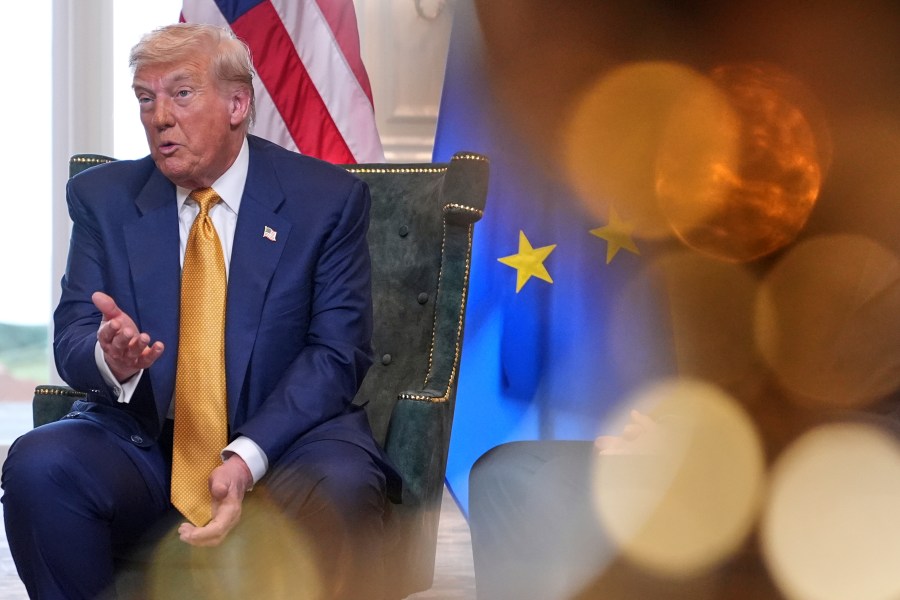The European Union’s trade agreement with the Donald Trump administration has elicited a spectrum of responses, highlighting both relief and disappointment among member states. While officials acknowledge that they avoided a potential economic catastrophe, concerns persist regarding the deal’s ambiguity and its implications for future trade relations.
The agreement, reached just ahead of the August 1 deadline, imposes a 15% tariff on most goods imported into the United States. Certain categories of goods will remain tariff-free, but critical sectors such as pharmaceuticals and steel lack clear agreements on tariff rates. According to Maroš Šefčovič, the EU’s chief trade negotiator, failing to finalize a deal would have led to a devastating 30% tariff threatened by Trump. He emphasized the importance of a negotiated solution to prevent a trade war that could jeopardize close to 5 million jobs across Europe, particularly in small and medium-sized enterprises.
Mixed Responses from EU Leaders
French officials have voiced strong criticism of the agreement, arguing that it falls short of the EU’s potential. Laurent Saint-Martin, France’s Foreign Trade Minister, stressed the need for a European response in the services sector, suggesting that the deal does not adequately reflect the bloc’s economic weight. “The good news is that there is an agreement — our companies now have visibility and stability,” he stated on France Inter radio. However, he cautioned that the agreement is “not balanced” and highlighted digital services as a significant area needing attention.
Similarly, Clément Beaune, France’s High Commissioner for Strategy and Planning, described the deal as unequal, asserting that Europe failed to leverage its position as the world’s leading trading power. He remarked, “When you look at it, the glass is a quarter full and three-quarters empty,” reflecting a sentiment of dissatisfaction with the outcome. French Prime Minister François Bayrou expressed his discontent on social media, characterizing the situation as a “dark day” for an alliance that should uphold shared values and interests.
In contrast, German Chancellor Friedrich Merz took a more conciliatory stance, suggesting that the agreement provides a predictable environment for businesses to plan and invest. “It is good that Europe and the U.S.A. have agreed and thus avoided an unnecessary escalation in transatlantic trade relations,” he noted, while still wishing for further trade relief.
Reactions from Other EU Member States
Italian Premier Giorgia Meloni, who aims to act as a bridge between the Trump administration and Europe, viewed the tariff agreement as a positive outcome that sidesteps a potentially devastating trade war. However, she emphasized the need for clarity on exemptions, particularly regarding agricultural products, which are vital to Italy’s economy, including its wine exports. She remarked, “There are a number of elements that are missing,” highlighting the non-binding nature of the deal in its current form.
Conversely, Hungarian Prime Minister Viktor Orbán, a supporter of Trump, criticized the agreement as a failure of European leadership. He claimed, “Donald Trump ate Ursula von der Leyen for breakfast,” asserting that the EU had not secured a favorable deal compared to the trade agreement between the U.S. and the UK, which imposed a blanket 10% tariff on exports.
Economists have also weighed in on the implications of the deal. Jon Harrison from TS Lombard remarked that agreements made under pressure often contain incomplete details, which could lead to varied interpretations. Jack Allen-Reynolds, deputy chief eurozone economist at Capital Economics, predicted that the deal could reduce the EU’s GDP by approximately 0.5%. Julian Hinz, a trade expert at the Kiel Institute for the World Economy, criticized the agreement as appeasement, warning that while it may avert a trade war for now, it compromises the principles of the multilateral trade system established by the World Trade Organization.
As the EU navigates the complexities of this agreement, the long-term impact on transatlantic trade relationships remains uncertain. With various member states expressing divergent views, the challenge lies in achieving a more balanced trade dynamic that reflects the collective strength of the European bloc.
